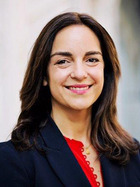Q. I think I may have cancer but I don't have any insurance and I'm not sure I can afford it. What can I do?
I understand your concern about the cost, but if you think you have cancer, you can’t afford not to visit the doctor. Cancer responds to treatment better when it’s caught early, and if it turns out that you don’t have it, you will have peace of mind.
There are 5 main ways to get health insurance:
Your, or your spouse’s, employer or union. If you or your spouse has a job that offers health insurance, ask if you’re eligible to receive it or buy into it. If you had insurance but lost your job within the last 60 days, ask if you’re eligible for COBRA. COBRA is a law that lets you keep your insurance for 18 months, sometimes longer. You pay the full cost.
Your school. If you are currently a full-time or part-time student, check with your college or university to see if you can get coverage through them.
Purchase it on your own. You can buy insurance either directly through an insurance company, or through your state’s Marketplace/Exchange. If you buy it directly through an insurance company, you will not be eligible for discounts based on your income. If you buy it through your state’s Marketplace/Exchange, your income will be taken into account, and you may receive an immediate subsidy, which will lower the cost of your premiums, and possibly your deductibles and co-pays as well. To find your state’s Marketplace, go to www.healthcare.gov. Please note: whether you buy it directly from an insurance company or through the Marketplace, you can only buy insurance during Open Enrollment. Open Enrollment occurs once a year; in most states, you must enroll between November 1 and December 15. There are a few exceptions to this rule – if you lose your job-based coverage mid year, get married, have a baby, move to another county or state, or become eligible for Medicaid, you are eligible for a “special enrollment period”. For more information on special enrollment periods, visit www.healthcare.gov.
Medicaid. Medicaid is a state-administered health insurance program that provides free or low-cost coverage to millions of Americans. In the 33 states (including Washington DC) that have chosen to “expand” Medicaid, it covers all children and adults below 138% of the Federal Poverty Level, which for 1 person in 2020 is $17,237. In the remaining 18 states, it only covers low-income families with children, pregnant women, the blind, and the disabled.
Medicare. If you are 65 or over, or have been deemed disabled by the Social Security Administration for 2 years, you may be eligible for Medicare. Contact www.medicare.gov for more information.
If you are unable to afford insurance and are ineligible for Medicaid or Medicare, ask about charity care and sliding scale programs (fees based on your income) at hospitals and clinics. Some hospitals are required to see patients who are uninsured. Contact your local department of public health, social services, or business office of your hospital of choice for more information.
Finally, if you are concerned about either breast or cervical cancer, the National Breast and Cervical Cancer Early Detection Program provides low-income, uninsured women access to screening and diagnostic services to detect breast and cervical cancers. Women who are subsequently diagnosed with cancer may be immediately eligible for limited Medicaid.

 Answered by
Answered by